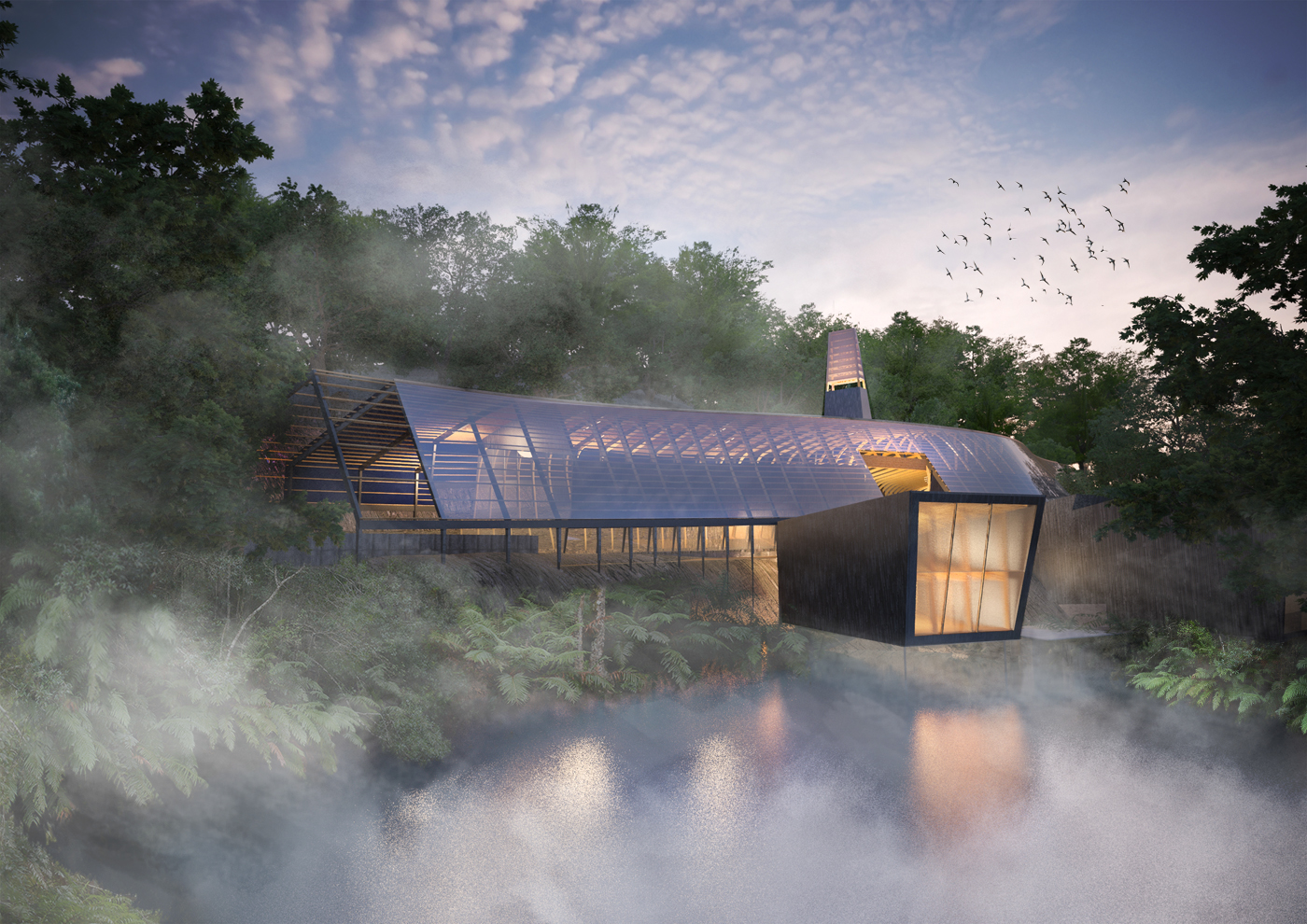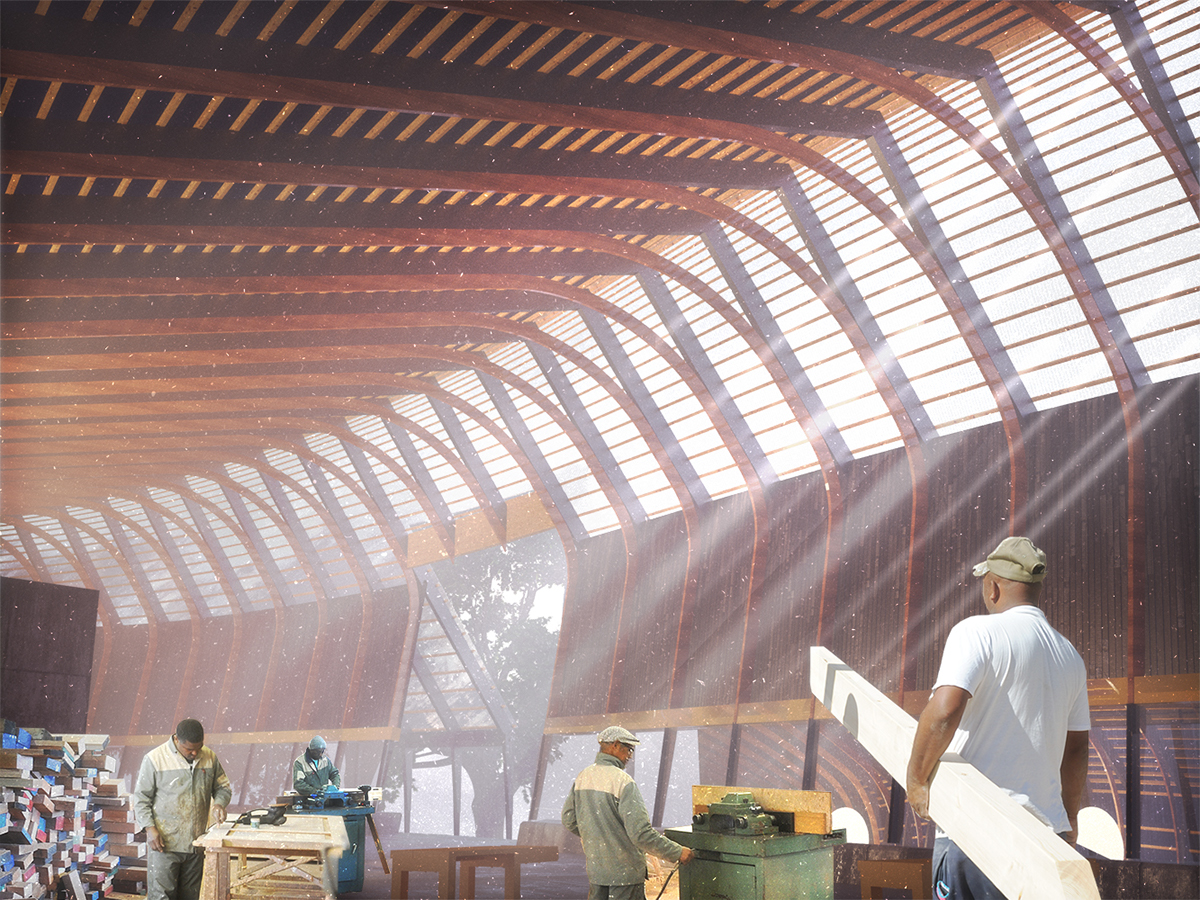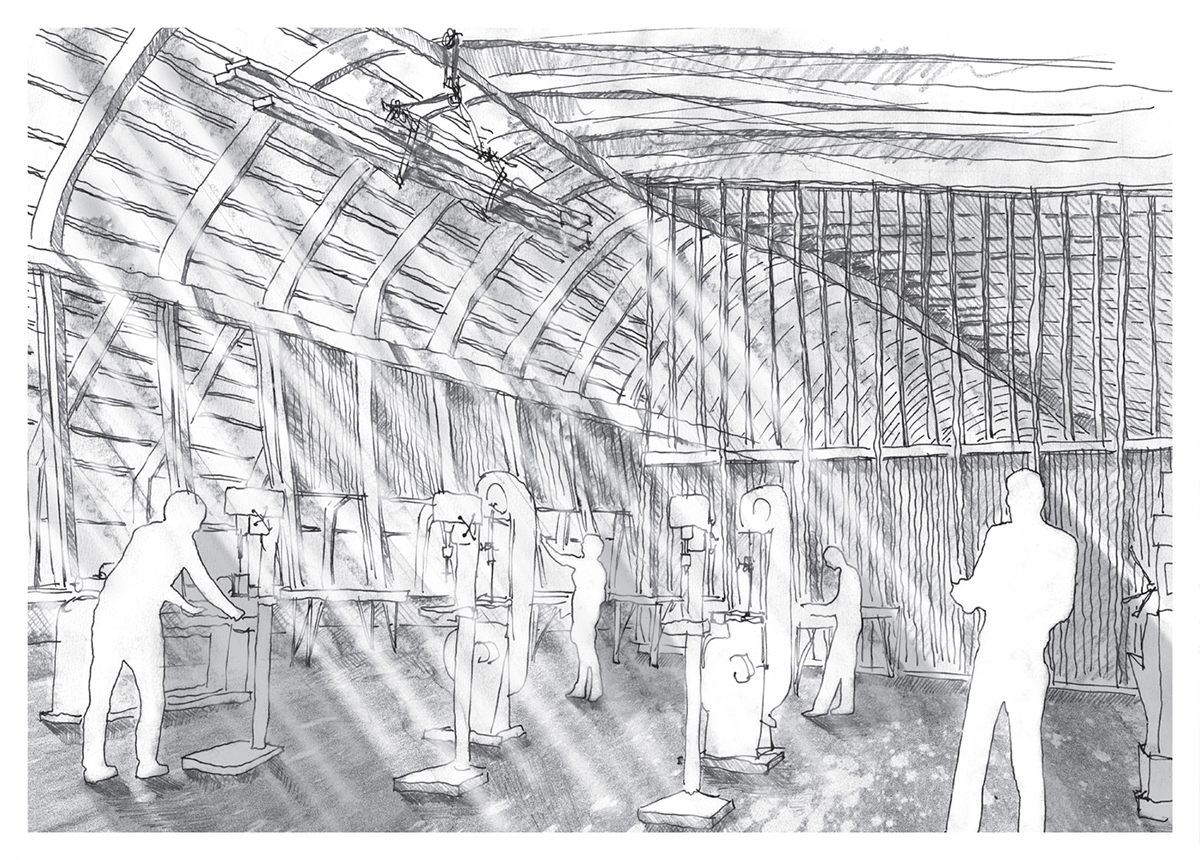
Forests, and the products we harvest from them, are vital to our economy and built environment, yet we have spiritual and emotional connections to trees which are at odds with these economic realities.
This thesis explores how architecture can act as a filter between the real and ideal worlds by looking at the nature of indigenous forests in South Africa, the abundant plantations so necessary to construction and trade, and the problem of invasive trees which act as destroyers of our fragile ecosystems.
The building is a centre for sustainable forestry in the Outeniqua forest outside Knysna - progressively removing invasive trees, turning them into useful wood products, and re-planting with scarce indigenous trees. In a social context of high unemployment this didactic building aims to connect ancient woodworking craft to modern fabrication technology for the purposes of skills training, reforestation and economic upliftment.
The woodcutter kills the tree, but brings us wood - a material of infinite uses: pliable, strong, beautiful in its variety – a material for the craftsman to shape, sand, and join.
The tensions between destruction and creation, natural and man-made, and industry and craft are brought to the fore in the search for the diverse, the specific, and the beautiful.






























